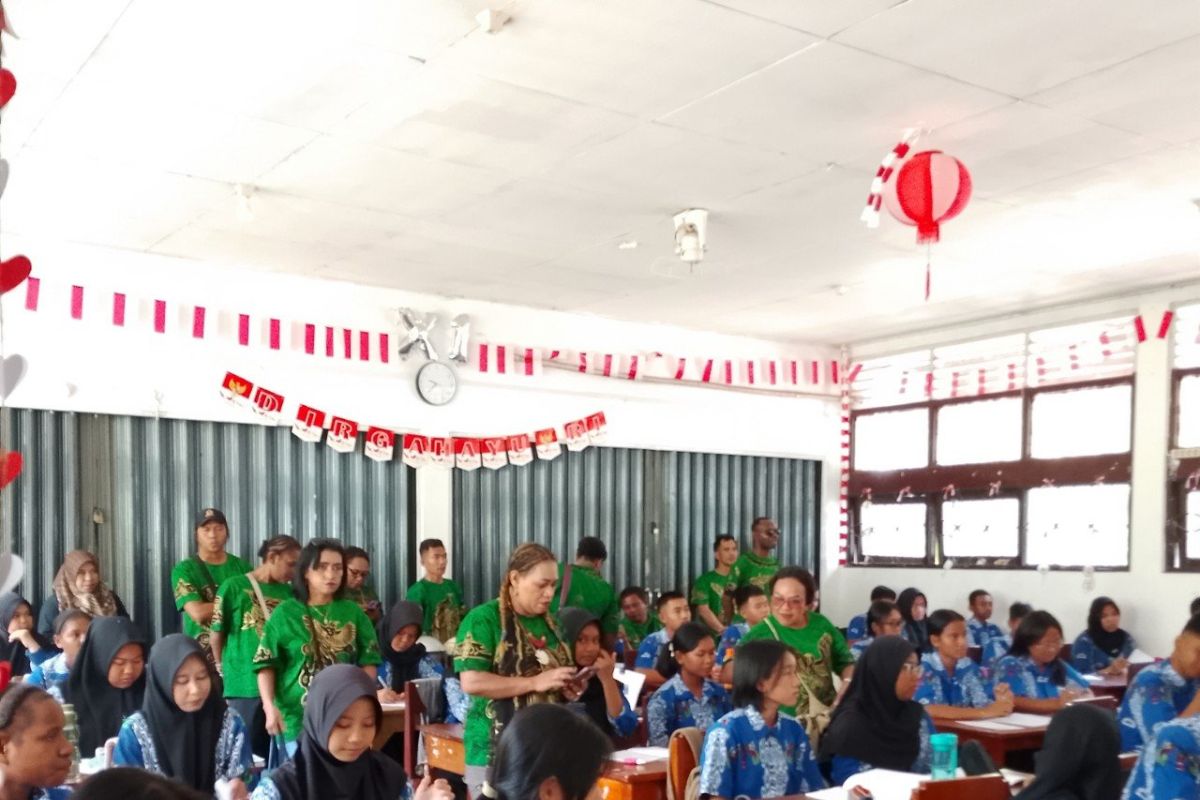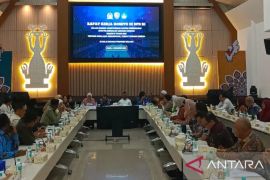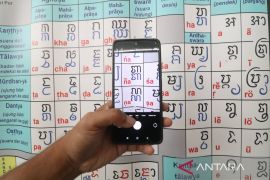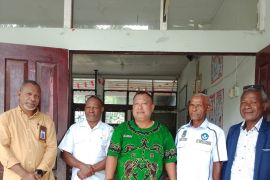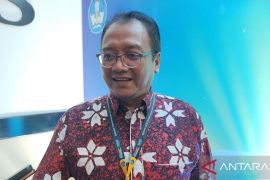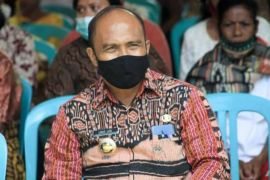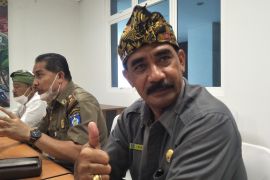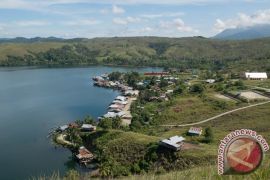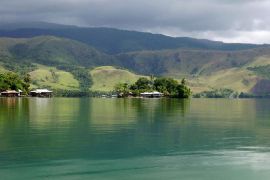Students enthusiastically repeated the pronunciation of Sentani language words taught by their teacher.
That day, representatives from the Education and Culture Office of Merauke District, South Papua Province, visited the school to conduct a benchmarking activity.
They wanted to directly observe how the Sentani language learning program has been implemented in Jayapura.
Despite the heat, the participants stayed focused. With notebooks in hand, they followed the teacher’s explanations alongside the students in class.
Merauke District is currently preparing to introduce local language learning into its school curriculum in 2026.
Antonius Maturbongs, a language specialist at the Papua Provincial Language Center, explained to ANTARA, the benchmarking program is a collaboration between the Merauke District Education and Culture Office and the language center aimed at preserving local languages.
Representatives from Merauke underwent three days of mentoring before observing the practical implementation of local language instruction in Jayapura District, helping them gain a clearer understanding of how to apply the program in their own region.
Jayapura District serves as a successful example of integrating local language learning into the formal education system. Sentani 1 State Senior High School and Sentani 6 State Junior High School are two pilot schools that demonstrate how the Sentani language can be effectively taught in classrooms.
In these classrooms, students from diverse backgrounds learn side by side. Indigenous Sentani children, as well as students from Biak, Toraja, and Batak communities, enthusiastically study the structure of the Sentani language.
Sentani language teacher Samuel Suebu said that teaching the language is not only about vocabulary but also about instilling pride in local identity amid cultural diversity.
Students from various ethnic groups have embraced the Sentani language with enthusiasm. Those from outside the Sentani area have even begun to use simple Sentani words in daily conversations at school.
Based on his three years of teaching experience, Suebu observed a remarkable shift in students’ habits. In the past, few students could speak Sentani, but now many are able to pronounce words correctly and understand their cultural meanings.
For Suebu, this enthusiasm proves that local language preservation has moved beyond slogans - it has become a living part of the learning process. He hopes similar programs will be developed in other districts across Papua.
Preserving indigenous languages
Incorporating local language learning is one of the Papua Language Center’s main strategies to preserve indigenous languages at risk of extinction.
The language center recorded that Papua has 428 local languages, many of which are endangered, with only one or two remaining speakers. The Jayapura District Government’s initiative therefore holds significant importance.
Local governments play a decisive role in language preservation efforts. Jayapura District became a pioneer through the issuance of District Head Regulation No. 21 of 2021 on the Implementation of the Mother Tongue Local Content Curriculum.
This regulation provides the legal foundation for schools to include local languages in their curricula. The initiative has since inspired others, including the Papua State Indigenous School.
According to Origenes Monim, Director of the Papua State Indigenous School, since its establishment in 2016, the school has served as a learning space for children around Lake Sentani to study language, traditions, and local wisdom.
With government support, the school developed its own local content curriculum and was officially recognized as the Papua State Indigenous School.
Today, 104 schools across Jayapura District - from elementary to senior high schools - teach mother tongue-based local content, marking a major step in nurturing awareness among the younger generation about language preservation.
From a self-managed system, the indigenous school has progressed to developing teaching modules and textbooks set for launch in 2026. The subjects will include topics such as traditional customs, cultural artifacts, local foods, and the practice of bridewealth.
Cross-institutional collaboration among the indigenous school, the language center, and the education office has been key to the program’s success. It is hoped that this model can be replicated in other regions, including Merauke.
For the Merauke District Education and Culture Office, the visit to Jayapura provided valuable insights and lessons.
Preparing modules
Untung, Head of the Licensing Control, Language, and Literature Division at the Merauke District Education and Culture Office, said the office will prepare mother-tongue learning modules following the benchmarking.
These modules, to be used in primary and secondary schools, are part of the district government’s effort to preserve local languages such as Marind, protecting them from extinction.
From the visit, participants gained firsthand understanding of how students and teachers interact dynamically through local language learning, realizing that language preservation is not just the responsibility of cultural agencies but an integral part of education.
The success of this integration was evident in the classroom they visited. As the Merauke benchmarking team prepared to leave, students cheerfully practiced one final conversation in the Sentani language, saying, “Helem Foi,” which means “thank you.”
The students’ enthusiasm showed that local languages can serve as bridges of unity amid diversity.
For the Papua Language Center, Jayapura’s experience is a concrete example of implementing local language preservation policies - an effort that harmonizes traditional values, education, and national pride.
“If we don’t protect our local languages, then who will? Language is identity, and losing a language means losing part of who we are,” Maturbongs said.
That benchmarking day ended with renewed hope - that from classrooms across Papua, a new generation will emerge that cherishes its languages, values its culture, and safeguards its ancestral heritage.
More than just notes and modules, the Merauke delegation brought home a spirit of commitment from Sentani, to teach, preserve, and nurture their mother tongues within their own district.
Related news: School in Papua becomes a stronghold for mother tongue preservation
Related news: Ministry introduces local language teaching in Jayapura schools
Editor: Primayanti
Copyright © ANTARA 2025
